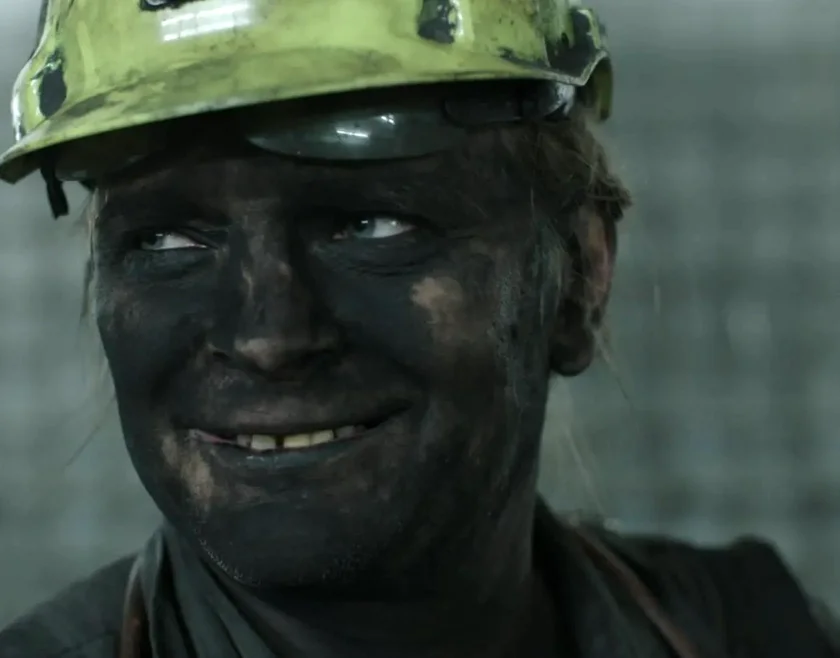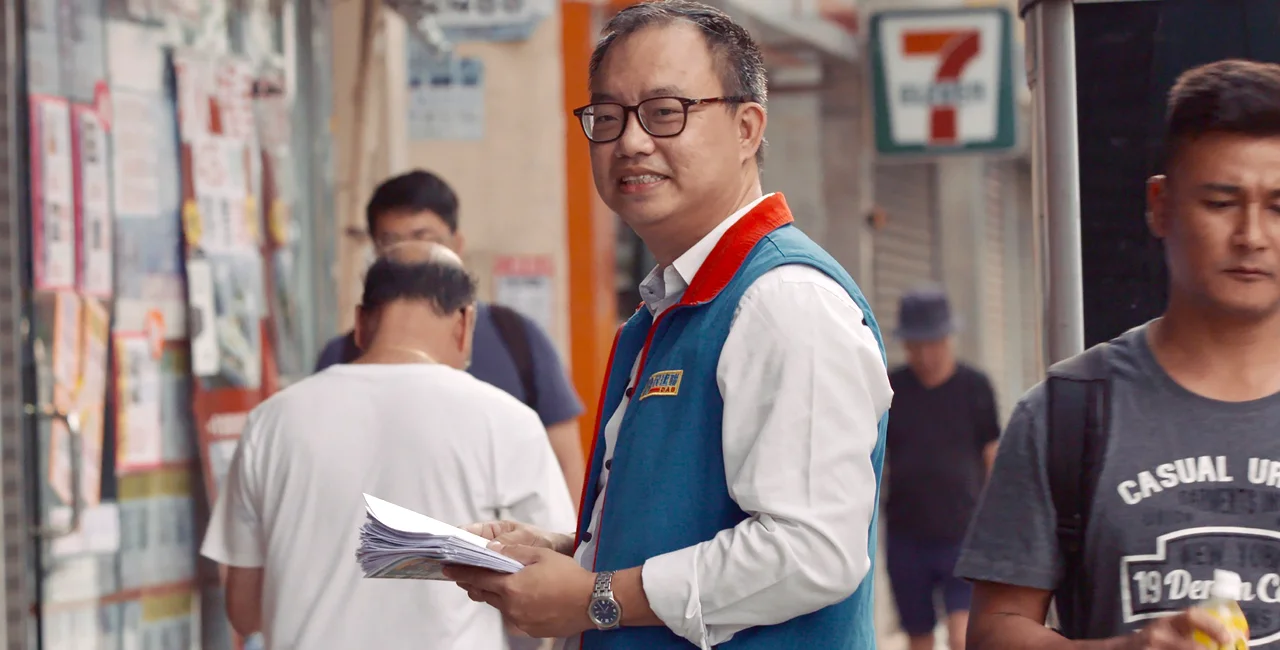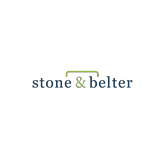The 24th Ji.hlava International Documentary Film Festival will take place online between October 27 and November 8, presenting over 59 world and 26 international premieres remains.
The program features over 220 films including new Czech and international documentaries, a South Korean film retrospective, a showcase of African-American docs as well as new documentaries focusing on topics such as coronavirus pandemic, China and Hong Kong, climate change, and films asking the fundamental question “where is our home?”
The festival will open with A New Shift by Jindřich Andrš, tributes to Roberto Minervini and Karel Vachek and a preview of a documentary about Milan Kundera.
“We are sorry that we can’t screen the films in cinemas but we want to see the current situation as an opportunity. One positive aspect is that everyone will be able to get to see the films,” festival director Marek Hovorka said.

“Fifteen years ago, the same year when YouTube was launched, Ji.hlava IDFF founded the first VOD portal dedicated to documentaries. Today, DAFilms.com is one of the leading European VOD platforms,” Hovorka added. DAFilms will be the festival’s this year’s streaming platform.
This year’s festival will not only focus on films. “In order to bring the unique atmosphere of Ji.hlava to online audiences, we have prepared several simultaneous live streams, all-day live service from the festival’s Lighthouse studio at the Ji.hlava’s central Masaryk square as well as an interactive environment interconnecting the audience with the filmmakers,” Hovorka said.
The entire program of over 220 films will be available online, geo-blocked for the Czech Republic. Festival accreditation, which includes a 14-days access to all films can be obtained for a symbolic 350 CZK.
Between October 27 and November 8, viewers from outside of the Czech Republic will be able to watch over 80 selected festival titles from the festival’s competition sections via DAFilms.com, for a fee of 2 to 4 euros per stream.
Competition sections
The topic “home” echoes in the Opus Bonum section. One Says No by Chinese director Dayong Zha that captures the fight of a man named Azhong to save his home. Expanding Chinese cities are swallowing the countryside, their inhabitants are forced to make space for new houses.
The Between the Seas section brings the best documentary production from Central and Eastern Europe, reflecting on the topic of our search for home in film titles such as Refugees Are Welcome Here by Tomáš Rafa. The film captures the uncertain situation in refugee camps in Berlin.
The history of ethnic Germans in Eastern Europe is explored in the Serbian film Belonging by director Tea Lukač. During World War II their German identity became a pretext for brutal violence. Only one-tenth of them survived.
Film discoveries: Ji.hlava’s First Lights
The First Lights section highights documentary debuts. It will include the Portuguese film Ghosts: Long Way Home directed by Tiaga Siopa. The filmmaker visits a house where his grandmother used to live and follows the traces of her life through the objects left behind.
Motherlands by Italian director Gabriel Babsi relates a story of a man who fled the war in Ivory Coast to Greece where he found a new job: working as a people smuggler. “What is morality when you don’t have a choice?” Babsi asks. “What is ethical when you have no rights? Can we be judged? And if so, by whom?”
Experimental sections
The experimental competition sections will bring, among other films, the new title by French experimental filmmaker Jacques Perconte called Before the Collapse of Mont Blanc. It asks if we are the last generation that will see snow on the mountain top.
In The Devil Had Other Plans, Israeli video-artist Guli Silberstein uses George Romero’s horror classic Night of the Living Dead to reflect on the current anxieties. “The combination of video and digital image has helped me express my fear and paranoia associated with the COVID pandemic,” Silberstein said.
The section will also feature Czech experimental cinema. Visual artist Lea Petříková’s new film After the Magician ponders the life of French-Mexican surrealist Alice Rahon. In 1947 she made her only film called Les Magiciens, but it was lost before ever being seen.
Zbyněk Baladrán will screen his film Catastrophe, which references a one-act play by Samuel Beckett dedicated to former Czechoslovak president Václav Havel in prison.
Czech Joy
The Czech Joy section presents new Czech documentary works. It will bring the premiere of Wolves at the Borders by director Martin Páv, which captures the approach of locals to the wolves returning to the Broumov region. “To what extent are we willing to accommodate the unpredictability of the world that does not only belong to us?” the director asks.
The Czech competition will also feature film portraits of world-renowned surrealist Jan Švankmajer and visual artist Jan Jedlička.
Švankmajer is captured in the film Alchemical Furnace made by Jan Daňhel and Adam Oľha. “Our aim was to create a formally independent film that will not imitate Švankmajer’s signature style,” Oľha said.
The film titled Jan Jedlička: Traces of a Landscape directed by Petr Záruba examines visual artist, photographer and experimental filmmaker Jedlička, who emigrated to Switzerland because of the political situation in Czechoslovakia in 1968.
Directors Vít Klusák and Filip Remunda will present an international premiere of their most recent film Once Upon a Time in Poland.
Short Joy: viewers will decide the winner
Viewers will be treated to a preview of festival films from the Short Joy section. All nominated short docs shown in their world or international premiere are already available for free at DAFilms.com. Viewers can vote via that portal until October 29, and the winner of the DAFilms Audience Award will be given online distribution and promotional services in the amount of 3,000 euros. The Short Joy films will then be presented as part of the online festival program until November 8.
100 years of South Korean documentary
The non-competition section Transparent Landscape that annually showcases the cinema production from one selected country will this year focus on South Korea. The showcase will start with films from 1920s that capture the boom of Korean cities and industries until films from recent decades.
Black Cinema Matters
“This year’s topical section Black Cinema Matters is not intended as a superficial response to the Black Lives Matter movement, on the contrary – the current social turmoil prompted us to draw attention to the rich and inspiring tradition,” David Čeněk, the section’s program selector, said. The section will have works by African-American filmmakers attesting to their direct experience with racism and violence. American curator Greg de Cuir Jr. was a consultant of the section.
Ji.hlava Industry program
The Industry program will take place online and will include a number of projects focused on film professionals. Industry accreditations are intended for film professionals and film school students and this year are issued free of charge.
IDF will present the Silver Eye awards
The Institute of Documentary Film (IDF) will organize an online version of the traditional East Silver Market with Central and Eastern European films for film professionals. Two international juries will decide on the best films on the market and the winners of the Silver Eye Awards.
Inspiration Forum
The 10th Inspiration Forum will take place as part of the 24th Ji.hlava International Documentary Film Festival from October 27 to November 1.
The Inspiration Forum will celebrate 10 years since its first edition. Six major topics will be presented and discussed over the course of six festival days. The topics include the potential of Africa, feeding humankind, the influence of intelligent technology, the position of women in religion, and what will happen if we stop using the “crisis narrative.”
More information is available at the festival website and on Facebook and Instagram.












 Reading time: 6 minutes
Reading time: 6 minutes 
































